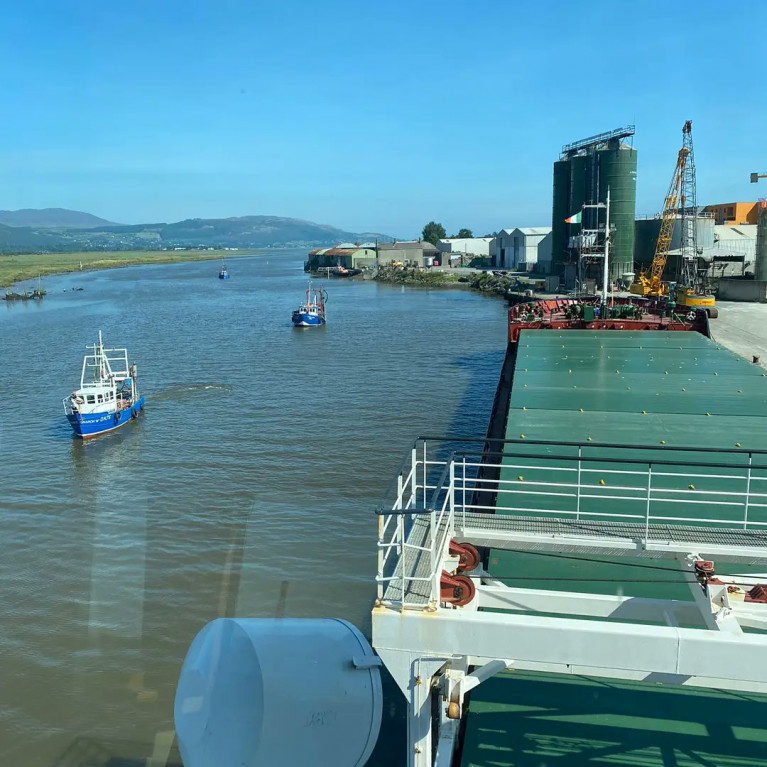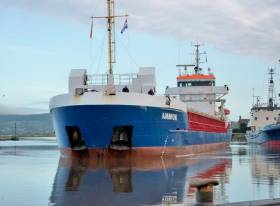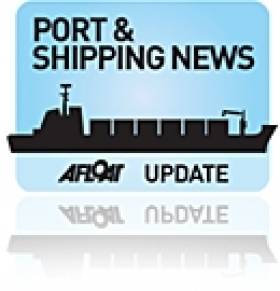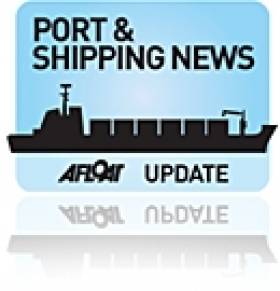Displaying items by tag: Dundalk Port
Co. Louth Port Set to Return to Local Ownership
Dundalk Port could come back under local ownership, after Louth County Council confirmed it hopes to be ready to begin the transfer process before the end of the year.
The port has been under the auspices of Dublin Port since 2011, and is currently operated under licence by a private company.
Cllr. Marianne Butler sought an update on Dundalk Port at the county council’s monthly meeting on Monday.
Chief Executive Joan Martin told councillors that discussions had been taking place with Dublin Port, and that risk assessments and “due diligence” was being carried out by the local authority.
More The ArgosDundalk reports on the Co.Louth port.
Notice To Mariners On Standard Operating Procedures For Dundalk Port
Dublin Port Company has issued a Notice to Mariners with regard to standard operating procedures or vessels entering, moving within and departing Dundalk Port.
The Co Louth port lies on the other side of the Cooley Peninsula from the border with Northern Ireland at Carlingford Lough, the precise boundary of which remains in dispute and could become a sticking point after Brexit.
The port is equidistant between Dublin and Belfast and has a long history as an independent seaport.
Dundalk Port was amalgamated into Dublin Port Company in 2011 due to previous financial difficulties following the 2008 global recession.
Dundalk Port Could be Controlled by Louth County Council
#DundalkPort- Dundalk Port could soon be controlled by Louth County Council following the signing of a bill by President Michael D Higgins on Christmas Day, reports The Talk of the Town.
The provision for the possible future transfer of the port from Dublin Port Company to the local authority was made as part of the Harbours Bill 2015, which came into force on December 25th.
The Harbours Bill 2015 provides the necessary legal basis for the transfer of ports to local authorities. Amongst the transfers that were made include Drogheda Port to Louth County Council while other ports that transferred as part of the Bill are Dún Laoghaire, Galway, New Ross and Wicklow.
Previously run by Dundalk Port Company, the local port as reported on Afloat had been run by Dublin Port Company since an amalgamation between the two companies in May 2011.
For further details on the control of the port, click here.
Dundalk Dredger Docked in Dublin Port Is Up for Sale
The Dublin Port Company has sought expressions from interested parties in undertaking the remaining activities of the port on an exclusive basis.
The Dundalk registered dredger arrived to the capital port on 14 July where she remains berthed at the Bulk Jetty in Alexandra Basin. Her previous owners, the Dundalk Port Company were unique in that they were the only port company to own and operate a dredger in the Republic. For many years the 757-tonnes dredger has carried out numerous contract assignments in ports throughout the island of Ireland including work on the Samuel Beckett swing-bridge and the most project was at Queens Quay, Belfast on the Lagan close to the city-centre.
Hebble Sand was launched by Richard (Shipbuilders) of Lowestoft for British Dredging and later used by Associated British Ports to serve a network of UK ports. Despite her age, the near fifty-year-old veteran vessel has been kept in excellent condition and this was evident during a rather unusual appearance for a ship of her type when attending the Dublin Docklands Maritime Festival in 2009.
She was made open for the public amongst the tall-ships that lined the Liffey Quays. Such an initiative was inspiring as it provided a rare opportunity for the public to access such a dredger which otherwise is not familiar compared to the popularity of visiting tall-ships and naval vessels.
The only other port to operate their own dredger is Londonderry Harbour Commissioners, whose Lough Foyle has worked on projects outside her homeport. This has included work at the new £40m Stena Line ferryport terminal on Loch Ryan close to Cairnryan and is due to open in November.
- Dublin Port
- Dublin Port Company
- Dundalk Port Company
- Stena Line
- Port of Dublin
- Ports and Shipping News
- Alexandra Basin
- Ferry news
- Dundalk Port
- Samuel Beckett Bridge
- Dredger Hebble Sand
- Dredger Lough Foyle
- Londonderry Harbour Commissioners
- Samuel Beckett SwingBridge
- Cairnryan ferryport
- Loch Ryan ferry terminal
- Associated British Ports
- ABP
- Richards Shipyard
- Queens Quay Belfast
- Dublin Docklands Maritime Festival 2009
Dublin to Manage Dundalk Port
"In order to ensure the orderly management of the company's affairs, I have decided that the best course of action is to transfer responsibility for the port to Dublin Port Company. I would be hopeful that port activities will continue at Dundalk following the transfer.
He added, once the current difficulties are overcome, it may be the case that Dundalk Port can return to local control, in cooperation with the local authority and private sector operators.
To amalgamate the two port companies a Transfer Order will be made under the Harbours Act 1996. In addition a draft order has to be approved by both Houses of the Oireachtas before being signed into law which is expected to take place within the coming weeks.
The Co. Louth port which is equidistant between Dublin and Belfast, has shown to have a long history as an independent seaport. However the recession has had a significant impact making trading conditions particularly difficult for the company. At its peak in 2006 there were over 220 vessels calling at the port but dropped to just over 60 vessels last year. Figures for 2011 show no signs of improvement.
Vessels of up to 3,500 dwt and 106m in length can be handled at the port's six berths. Unusally for an Irish port vessels can be seen resting on the mudbank subject to the state of the tide. The port is some 8kms from the open sea and is reached along a narrow channel which requires the compulsory use of a pilot.




























































